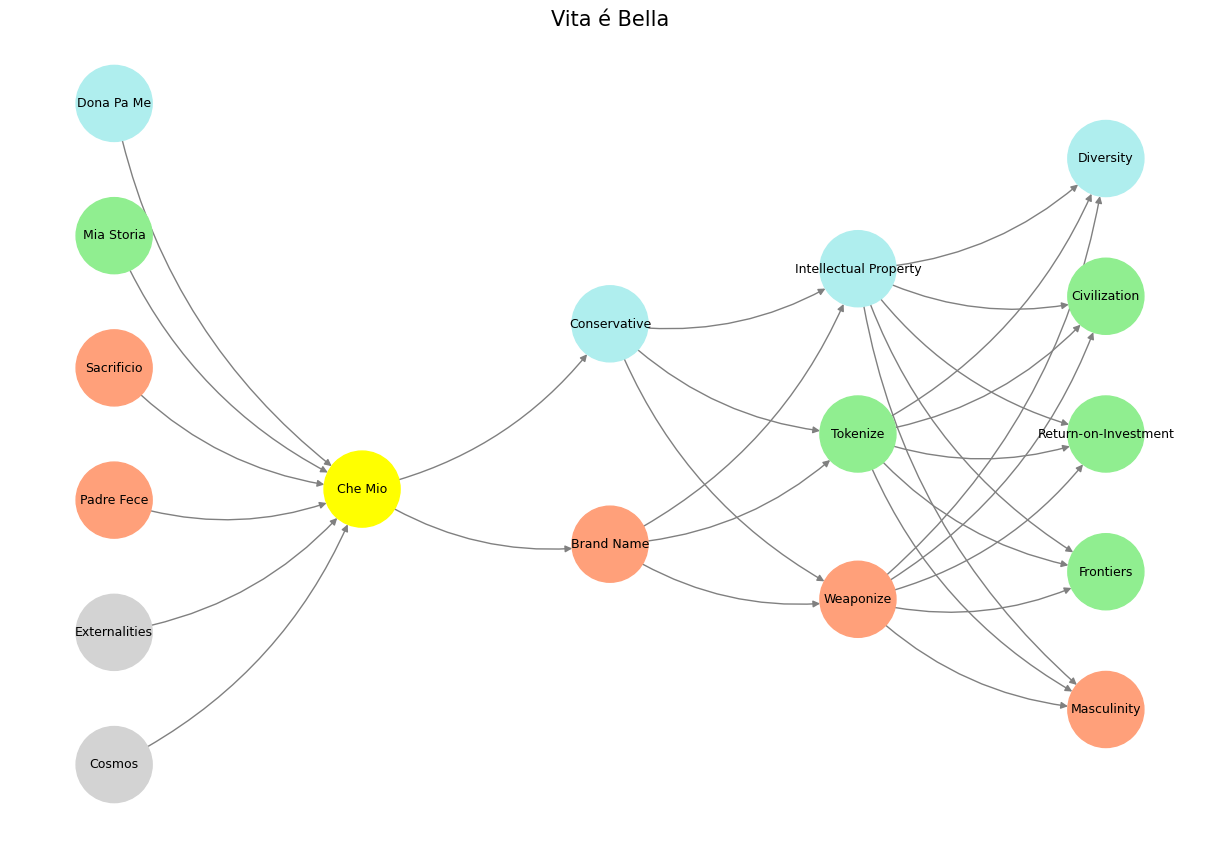Prometheus#
The Five Layers of the Game: Intelligence as the Shield Against Being Gamed 🎭⚔️🎲#
Intelligence, at its core, is not about raw computation or sheer cognitive horsepower—it is about conditioning our senses, refining our instincts, and sculpting our awareness so that we are not gamed 🎭. To be intelligent is to navigate games—not as passive participants but as sovereign players, sculpting fate in our favor. The five layers of this neural network are not mere abstractions; they represent the gradations of power, control, risk, and hubris that define human decision-making. We begin in the abyss of pure chance 🎲, climb through the veiled reflexes of deception 🎭, balance on the knife’s edge of adversarial play ⚔️, secure dominance in near-certainty 🏰, and finally, soar into the realm of unfounded faith, hubris, and folly ☀️🔥.

Fig. 12 Mendelssohn: A Midsummer Night’s Dream (Wedding March) conducted by Sir John Eliot Gardiner with the London Symphony Orchestra.#
1. Ecosystem (∂Y) 🎶✨👑 95/5 — The Realm of Pure Chance#
At the first level, we are at the mercy of chance 🎲. There is no strategy here—only fate, probability, and the laws of mathematics. A coin toss 🪙, a dice roll 🎲, a roulette wheel spin 🎡—these are the archetypal symbols of this layer. Athena’s spear is blunt here, and her shield is but an ornament; no divine wisdom can shift the balance in a game where the odds are rigid, unyielding, and absolute. The best we can do is accept the reality of 95-5 odds, knowing that we are playing a game where no agency can alter the outcome.
This is where the reckless gambler loses themselves, placing their trust in fortune rather than skill, hoping that fate will bless them despite the merciless neutrality of the universe. 🎭 The dice fall where they may. The roulette wheel does not whisper secrets. There is no counterplay. This is the primordial chaos of probability. 🎰
2. Reflex (-kσ) ☭⚒ 80/20 — The Mask of Deception#
Here, Athena’s shield begins to function—not as an impenetrable barrier, but as a mask 🎭. The world of 80-20 is where games like poker 🃏 thrive, where deception, bluffing, and controlled reflexes define the battlefield. The advantage is with the player who can hide the tremors in their hands, slow their breath, and silence the subconscious giveaways that would betray them.
Here, intelligence is an armor of presentation, a manipulation of perception. We are no longer merely at the mercy of odds; we can shape the game through illusion. This is the realm of the spy 🕵️, the con artist 🎩, the strategist plotting in shadows. It is where one must suppress fear, harness composure, and mold reality to their advantage.
One cannot escape probability entirely, but one can tilt the scales—through misdirection, sleight of hand, and psychological warfare. The world is still uncertain, but it is navigable. 🏴☠️
3. A Priori (α) 🔪🩸🐐 vs 🐑 51/49 — The Knife’s Edge#
Now, we step into the arena where adversaries are true equals. 🏇⚔️ This is the level of horse racing 🏇, Formula One 🏎️, and the clash of gladiators in the Colosseum. Unlike the prior realm of deception, where hiding one’s weaknesses could shift the game, this is a world where both competitors wield weapons of equal lethality. The difference is razor-thin, 51-49. The smallest margin—a single mistake, a fraction of a second, a blink of hesitation—can determine victory or defeat.
Athena’s warriors march here, wielding both spear and shield, facing others of equal strength. The best horses are bred for speed, the sharpest swords forged for duels. This is the realm where a single well-timed decision can change history, but only barely.
It is the most dangerous of all, for even the slightest miscalculation means oblivion. The gods do not bless fools here. Only the strongest remain. ⚔️
4. Likelihood (Xβ) 🎹 20/80 — The Fortress of Stability#
Once we move beyond the knife’s edge, we enter the domain where control is nearly absolute. 🏰💪 The 20-80 world is one of fortresses, of robust defenses, of kings surveying their dominions. This is the world of chess ♟️, where all information is visible, where war strategists map out campaigns, and where probability leans heavily in favor of those who understand the terrain.
Here, Athena’s shield is no longer an aesthetic prop or a psychological crutch—it is a bastion of power. The enemy cannot see through our defenses, nor can they easily breach our strongholds. Intelligence here means stability. It means securing one’s tribe, establishing dominance, and creating a structure where randomness is minimized.
Unlike the previous layers, where risk is omnipresent, this is the world where success becomes self-reinforcing. The strong remain strong. The empire flourishes. The enemy must expend enormous effort to unseat the ruler. But while security reigns, stagnation looms… and hubris begins to whisper. 👑
5. Posteriori (γ) 😃⭕️ 5/95 — The Domain of Hubris#
And then, at last, we reach the edge of the labyrinth. The place where caution vanishes, where faith overtakes reason, where men and women leap without looking. ☀️🔥
This is the world of 5-95, where people commit to long-term gambles on the barest of information. The domain of love at first sight ❤️, of blind trust, of marriage proposals made on impulse. It is the world where someone leaps into the unknown with both feet—and both eyes closed. In the hands of a great poet, this world gives you absurdity in The Dude with Maude Lebowski, Nick Bottom with Titania, but also the tragedy of Romeo et Julliette.
Here, Icarus crafts his wings 🪽. Here, he flies toward the sun, convinced that he is invincible. Here, he believes himself untouchable… until the wax melts. 🌞
The danger of this final level is the assumption of certainty when certainty does not exist. While previous layers had gradations of probability, deception, and strategy, this realm is built on faith alone. Those who navigate it successfully become legends. But for most, it is the fall of the fool, the tragic end of a once-great empire, the illusion of power dissolving into the abyss.


